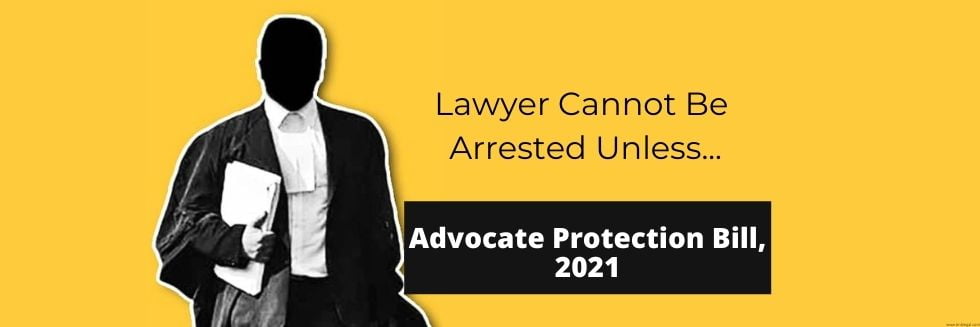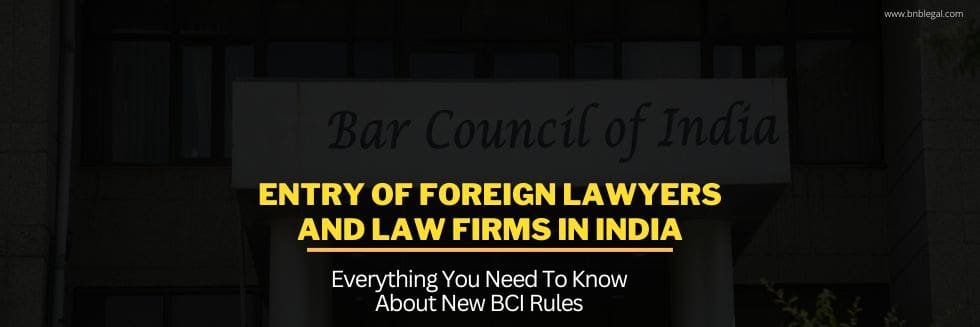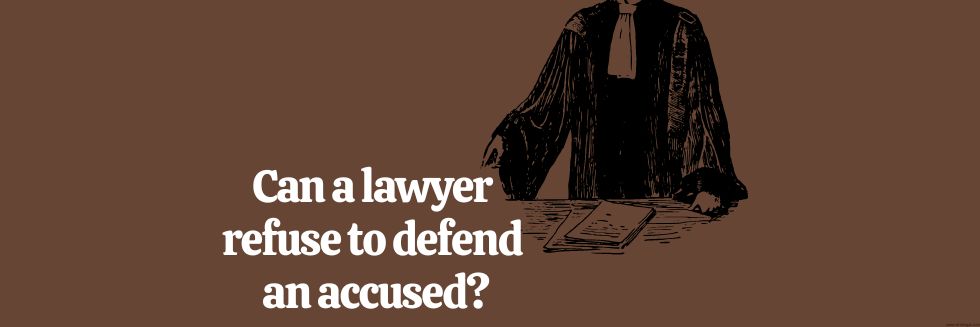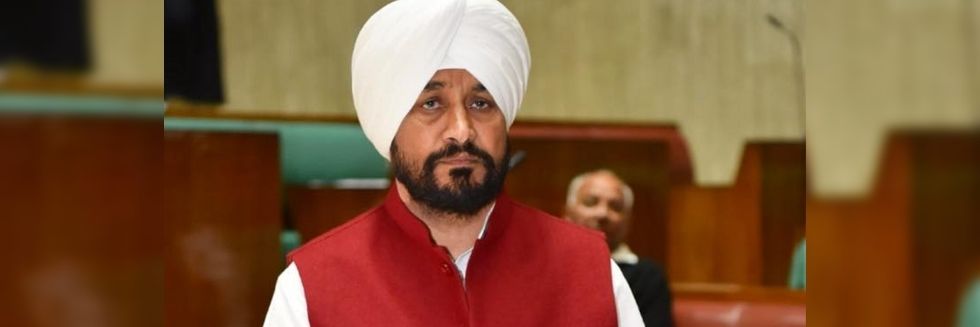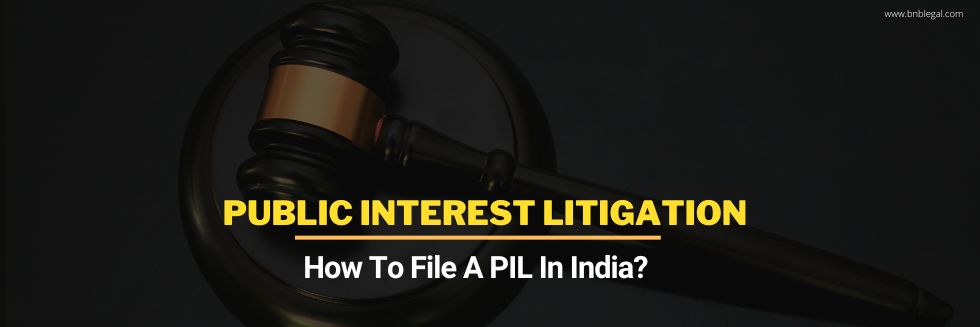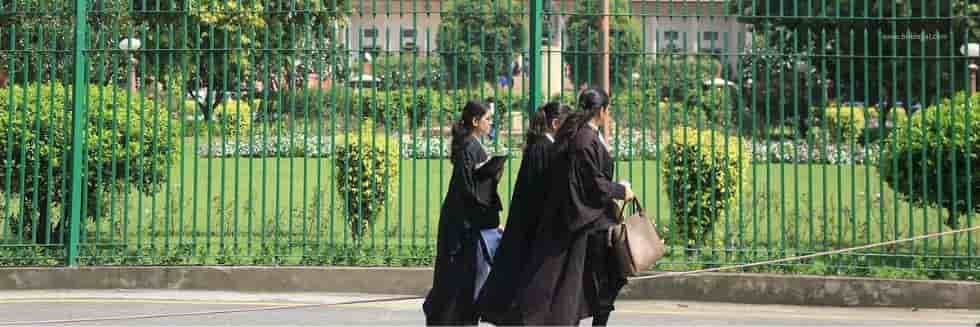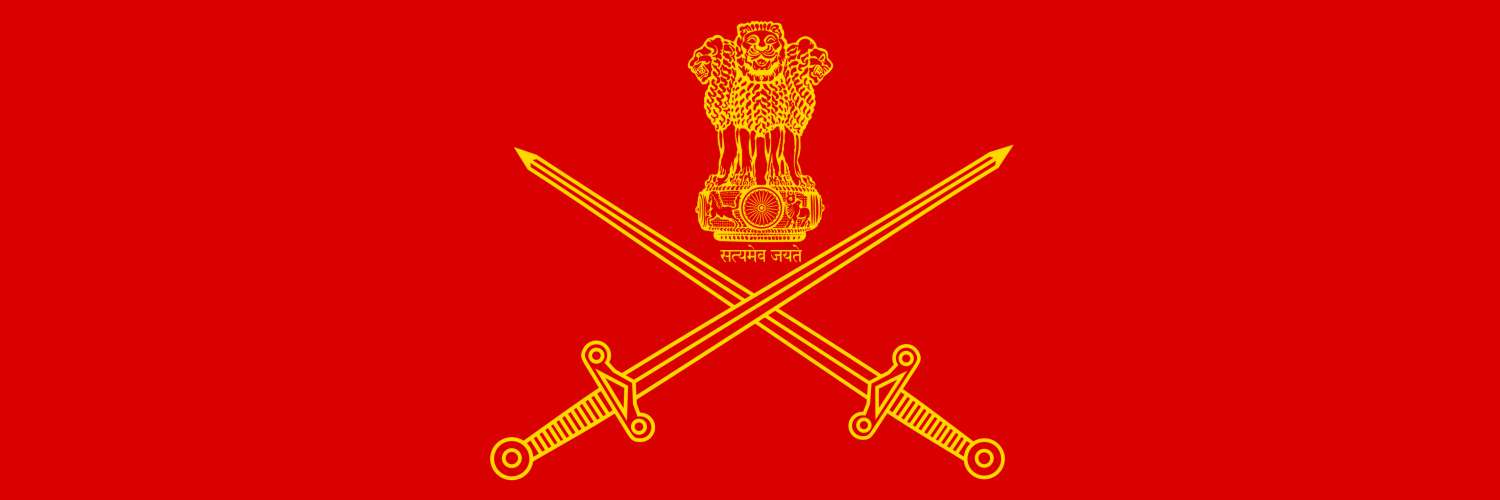Considering repeated episodes of harassment and assault against advocates, the Bar Council of India on 10 June 2021 issued a notice to constitute a 7-member committee to draft the Advocate Protection Bill. The Bill was released on July 2nd, 2021. It aimed at providing protection to the advocates against rising crimes to let them deliver their duties properly. There are several advantages of Advocate Protection Bill 2021 which can only be available if approved. Let’s read about all the key features of Advocate Protection Bill 2021.
The provisions aim at providing protection to the advocates and the removal of restrictions on their ability to perform their duties. The Bill has also been drafted in compliance with the United Nations Congress on the Prevention of Crime and Treatment of Offenders which took place in Havana, Cuba (27 August-7 September 1990). India participated and accepted Basic Principles on the Role of the Lawyer”.
Crime Against Advocates And Need Of Advocate Protection Bill, 2021
An advocate plays a vital role in creating a safer world by providing every person easy access to justice. They are representatives who help people bring their issues in front of the judicial system. Advocates are the one to help people know their rights as well as their duties. But increasing incidents of assaults, killings, and illegal detentions of advocates raise concerns related to their safety.
- In July 2021, a 41-year-old corporate lawyer was abused and assaulted by a cyclist in a road rage incident.
- A mob containing over 20 people attacked two lawyers with swords who were meeting their client.
- Murder of Advocate Gattu Vamana Rao and his wife PV Nagamani by hired killers where he had filed complaints against two local leaders in his village from the ruling party to prevent them from encroaching on public land.
- Three men were arrested for kidnapping and killing a lawyer and discarding his body in the forest in October 2020.
All such incidents have instilled fear in their minds which hampers their zeal to perform their duties. Therefore, this bill aims at solving all these problems and protecting them against all crimes.
Police as well as Judges have some or the other kind of protection provided to them. Judges are provided protection under Judges Protection Act, 1985. However, there is no such provision for the lawyers.
Advantages/Key Features Of Advocate Protection Bill, 2021
In the 2021 introduced Bill, there are 16 Sections.
1. Acts Of Violence And Definition Of ‘Advocate’ Under Section 2 Of Advocate Protection Bill
(1) In this Act, unless the context otherwise requires-
(a) “act of violence” refers to acts committed by any person against an advocate, with an intent to prejudice or derail the process of impartial, fair and fearless conduct of any litigation before any court, tribunal or authority in which such Advocate is engaged or acts of retribution towards the outcome of proceedings before any of the above forums and includes the following:
- Harassment, coercion, assault, criminal force or threat impacting the living or working conditions of such advocates and preventing him from discharging his duties;
- Harm, injury, hurt, either grievous or simple, or danger to the life of such advocates, either within the premises of the Courts or
otherwise;
iii. Coercion by whatsoever means, of an Advocate to reveal or part with privileged communication or material which such Advocate is bound to hold in confidence under law;
- Coercion by whatever means, of an Advocate not to represent or to withdraw his Vakalath or appearance to act, plead or appear on behalf of a client before any court, tribunal or authority;
- Loss or damage to any property or documents or materials which such Advocate is bound to hold under law;
- Usage of derogatory language during the course of the judicial and quasi-judicial proceedings.
(b) “Advocate” shall have the same meaning as provided under Sec. 2(1)(a) of the Advocates Act, 1961.
(2) The words and expressions used in this Act, but not specifically defined shall have the same meaning as assigned to them in the Advocates Act, 1961, the Bar Council of India Certificate and Place of Practice (Verification) Rules, 2015 and the Indian Penal Code, 1860.
2. Punishment
Section 3 and Section 4 of the Advocate Protection Bill deal with the punishment and compensation.
(1) Whoever commits or abets the commission of an act of violence, except grievous hurt covered by sub-section (2) hereunder, against an advocate shall be punishable with imprisonment for a term which shall be not less than six months but which may extend to five years and with fine up to one lakh rupees.
(2) Whoever, having already been convicted of an offence under this Act is convicted for the second or subsequent offence, shall be punishable with imprisonment for a term which shall not be less than one year but which may extend to ten years and fine which shall not be less than two lakh rupees.
3. Compensation
1) In addition to the punishment provided
2) for an offence under Section 3, the person so convicted shall also be liable to pay, by way of compensation, such amount as may be determined by the Court for causing any act of violence against any advocate.
3) Notwithstanding the compounding of an offence under Section 6 hereunder, in case of damage to any property or loss caused, the compensation payable shall be twice the amount of fair market value of the damaged property or the loss
caused, as may be determined by the Court.
4) Upon failure to pay the compensation awarded under sub-section (1) and (2) hereinabove, such amount shall be recovered as an arrear of land revenue under the Revenue Recovery Act, 1890
4. Nature of Offence and Jurisdiction of Courts
Notwithstanding anything contained in the Code of Criminal Procedure, 1973 –
- i) an offence punishable under Section 3 shall be cognizable and non-bailable;
- ii) any case registered under Section 3 shall be investigated by a police officer not below the rank of Superintendent of Police;
iii) investigation of a case under Section 3 shall be completed within a period of thirty days from the date of registration of the First Information Report;
- iv) No court inferior to that of a District and Sessions Judge shall try an offence punishable under Section 3;
- v) in every inquiry or trial of a case under Section 3, the proceedings shall be held as expeditiously as possible, and in particular , when the examination of witness has once begun, the same shall be continued from day to day until all the witness in attendance have been examined, unless the Court finds the adjournment of the same beyond the following day to be necessary for reasons to be recorded, and an endeavour shall be made to ensure that the inquiry or trial is concluded within a period of one year;
PROVIDED that where the trial is not concluded within the said period, the Judge shall record the reasons for not having done so:
PROVIDED further that the said period may be extended by such further period, for reasons to be recorded in writing, but not exceeding six months.
5. Compounding of offences
Where a person is prosecuted for committing an offence punishable under Section 3, such offence may, with the permission of the Court, be compounded by the person against whom such act of violence is committed.
6. Protection Against Arrest And Prosecution
Section 11 provides that No Police Officer shall arrest an Advocate and/or investigate a case against an Advocate without the specific order of the Chief Judicial Magistrate. When information is given to an Officer-in-Charge of a Police Station of a commission of any offence by an Advocate, the Police officer shall enter or cause to be entered the substance of information with a book to be kept by such officer and refer the information with other connected materials to the nearest Chief Judicial Magistrate, who shall hold a preliminary inquiry into the case, and the Chief The judicial Magistrate concerned shall issue notice to the advocate and give the opportunity of hearing to him or his counsel or representative.
After hearing if the CMJ finds that FIR has been filed against the Advocate for some malicious reasons emanating from the discharge of official duties of the Advocate then CMJ shall grant bail to the Advocate.
7. Police Protection:
(1) Any Advocate who is under the threat of being a victim of an act of violence shall be entitled to Police Protection for a duration which the Court deems fit, upon making an application before the High Court of the State within which he is
registered to Practice law
(2) Every High Court shall, before passing orders under Sec. 7(1), scrutinise the personal antecedents of such advocate, including his criminal record and any other necessary material which it requires, in order to satisfy itself of the character and conduct of such advocate, and the bona-fides of the application filed under Sec. 7(1).
(3) Wherever the Police security is provided to the Advocate, the Superintendent of Police shall, before taking a decision to withdraw,reduce or discontinue such security, refer the matter to the Registrar of the District Court or in the case of an Advocate ordinarily prosecuting in the High Court, the Registrar General of the High Court for their concurrence.
(4) No decision shall be taken by the Superintendent of Police to withdraw, reduce or discontinue the security provided to the Advocate, unless a notice of one week is first served on the advocate in this regard.
8. Advocate Deemed To Be Officer Of The Institution
An advocate pleading for a party before the Court, Tribunal or Authority, including the Police, shall be deemed to be an officer of such Institution, and be extended the same treatment available to other officers of such institution.
9. Protection Of Action In Due Conduct Of Duties By Advocates
Notwithstanding anything to the contrary in any other law for the time being in force, no suit, prosecution or other legal proceeding shall lie against any Advocate for anything which is in good faith done or intended to be done in the due conduct of duties of such Advocate in pursuance of the provisions of this Act and any rule, order, notification thereunder or under any direction of a Court or any other authority which is empowered to give directions to Advocates.
10. Malicious Prosecution of Advocates
(1) Where any suit, prosecution or other legal proceeding instituted against an Advocate by any person is found by the Court hearing such proceeding to be vexatious in nature, or motivated by a malicious intention to derail the process of impartial, fair and fearless conduct of any litigation before any court, tribunal or authority in which such Advocate is engaged, or, is an act of retribution towards the outcome of proceedings before any of the above forums, the said proceedings shall be liable to be dismissed, with costs.
(2) Any person found to have initiated a vexatious or malicious proceeding against an Advocate shall be liable to pay, by way of compensation, such amount as may be determined by the Court, which amount shall not be less than Rs.100,000/-.
11. Presumption As To Coercion In Case Of A Public Servant Obtaining Privileged Communication From Legal Practitioner
Whenever any public servant having powers of investigation under Chapter XII of the Code of Criminal Procedure, 1973 (2 of 1974) or such other powers of detention, arrest and investigation under any other law or purporting to so act under any law is found in possession of or found to use in his investigation privileged communication or material which can be shown to be obtained from a barrister, attorney, pleader, vakil or any other legal practitioner duly practising the profession of law it shall be presumed that such privileged communication or material was obtained by such public servant by coercion.
12. Act Not In Derogation Of Any Other Law
The provisions of this Act shall be in addition to and not in derogation of the provisions of any other law for the time being in force.
13. Power To Make Rules
(1) The Central Government after consultation with the Bar Council of India may, by notification in the Official Gazette, make rules for carrying out the purposes of this Act.
(2) Every rule made under this Act shall be laid, as soon as may be after it is made, before each House of Parliament, while it is in session for a total period of thirty days which may be comprised in one session or in two or more successive sessions, and if, before the expiry of the session immediately following the session or the successive sessions aforesaid, both Houses agree in making any modification in the rule or both Houses agree that the rule should not be made, the rule shall thereafter have effect only in such modified form or be of no effect, as the case may be; so, however, that any such modification or annulment shall be without prejudice to the validity of anything previously done under that rule.
14. Application Of Code of Criminal Procedure, 1973 To Proceedings Under The Act
Save as otherwise provided in this Act, the provisions of the Code of Criminal Procedure, 1973 (2 of 1974) (including the provisions as to bail and bonds and appeals) shall apply to the proceedings before the Court.
15. Three-Member Committee for Redressal of Grievances of Advocates
A three-member committee for Redressal of Grievances of Advocates and Bar Associations have been provided at each level i.e District, High Court, and Supreme Court. The head of this committee is to be the head of Judiciary of that level such as District Judge for District Level, Chief Justice or his nominee for High Court level and CJI or his nominee for Supreme Court level.
The appointment of the remaining two members is to be done by nomination by the respective Bar Councils. The president of the Bar Council shall be the Special Invitee at the meetings of the redressal committee.
16. Social Security Through Financial Assistance
The Bill has proposed under Section 15 of the Bill that the Central Government, as well as the State Government, might grant financial assistance to Advocates in need during unanticipated events such as epidemics or other natural disasters.
On the proposal of the State Bar Council, the Local District Magistrate or District Court may pay a minimum of Rs. 15,000 to Advocates in need till the epidemic or other natural calamity is over.
Half of the costs will be covered by the Central government and the other half by the State Bar Council.
The Bill also urges the Central government to introduce loan and insurance schemes for lawyers where it can order Public Sector Undertakings and Scheduled Banks to grant loans at fair interest rates via a circular.
Conclusion
Increasing crime and demand for legal aid emphasize the need of such laws which can protect advocates by providing them a safer environment to perform their duties in all good faith. These are some of the advantages of the Advocate Protection Bill of 2021. It is still pending for approval.
This article is written by Varsha. You can reach out to the author via email at bnbvarsha@gmail.com.
